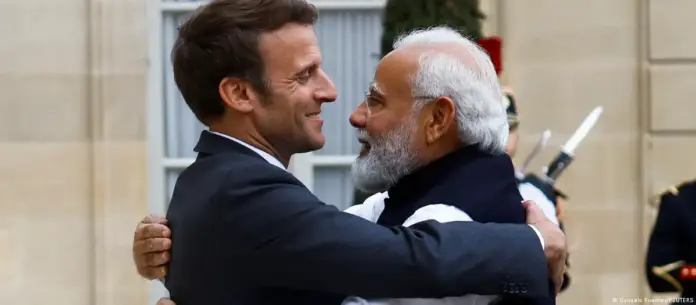
In recent years, India and France have intensified their strategic partnership through joint military exercises and high-level diplomatic dialogues. The Garuda VII exercise in October 2022 showcased their commitment to enhancing operational capabilities. French Foreign Affairs Advisor Emmanuel Bonne’s visit to India in January 2023 further solidified this partnership, coinciding with the 36th Indo-French Strategic Dialogue.
Moreover, the emergence of the U.S. Indo-Pacific Strategy has spurred strategic realignments globally. Both Indo-Pacific nations and European powers, including France, have responded with their own strategies tailored to the region’s dynamics. France’s Indo-Pacific Strategy stands out for its distinctive features and implementation approach, reflecting the evolving geopolitical landscape.
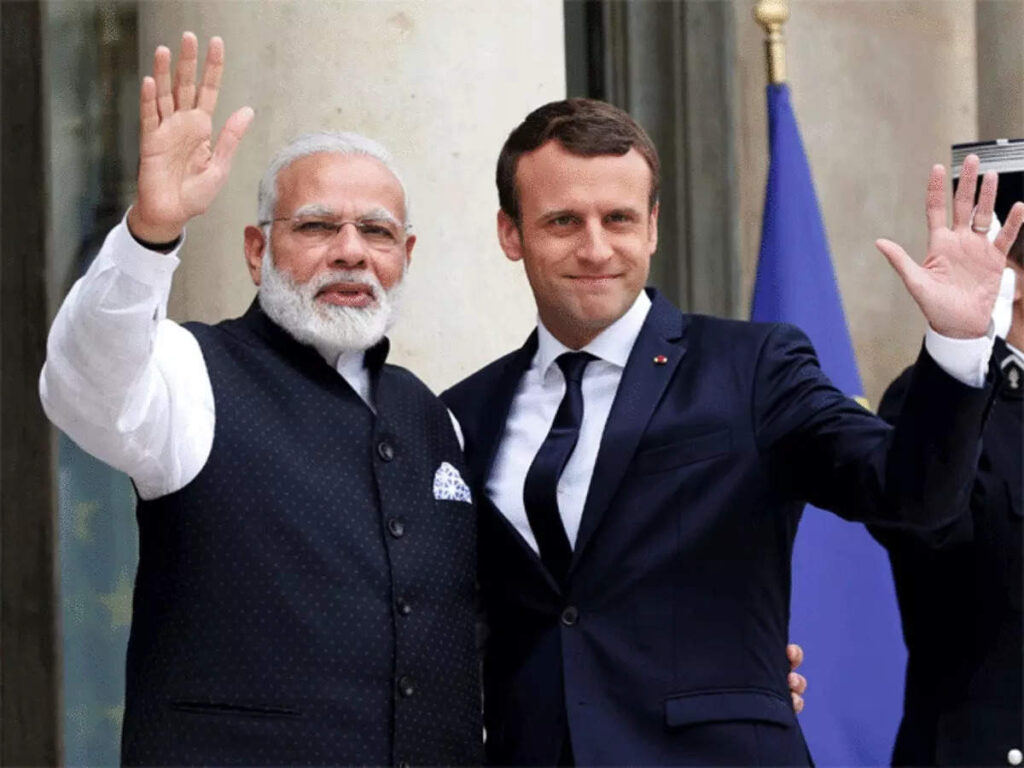
The Bilateral Level: A Realistic Advance in Strategic Security Cooperation
India and France’s cooperation traces back to the 1950s, with space collaboration beginning in the 1960s. In 1998, France was among the first to sign a strategic partnership agreement with India, focusing on defense, space, and civil nuclear energy. The civil nuclear sector saw significant cooperation, especially after the 2008 Indo-French civil nuclear cooperation agreement. However, progress in civil nuclear energy projects faced hurdles such as local resistance and sectoral approvals.
Maritime and defense security cooperation between the two nations has also deepened over the years. The establishment of a bilateral maritime dialogue in 2016 led to agreements such as the White Shipping Agreement, facilitating information exchange on maritime activities. Notably, the Joint Strategic Vision of India-France Cooperation in the Indian Ocean Region
was agreed upon during French President Macron’s visit to India in 2018. Joint military exercises like Varuna and coordinated patrols in the Indian Ocean underscore the growing interoperability and trust between the two defense forces.
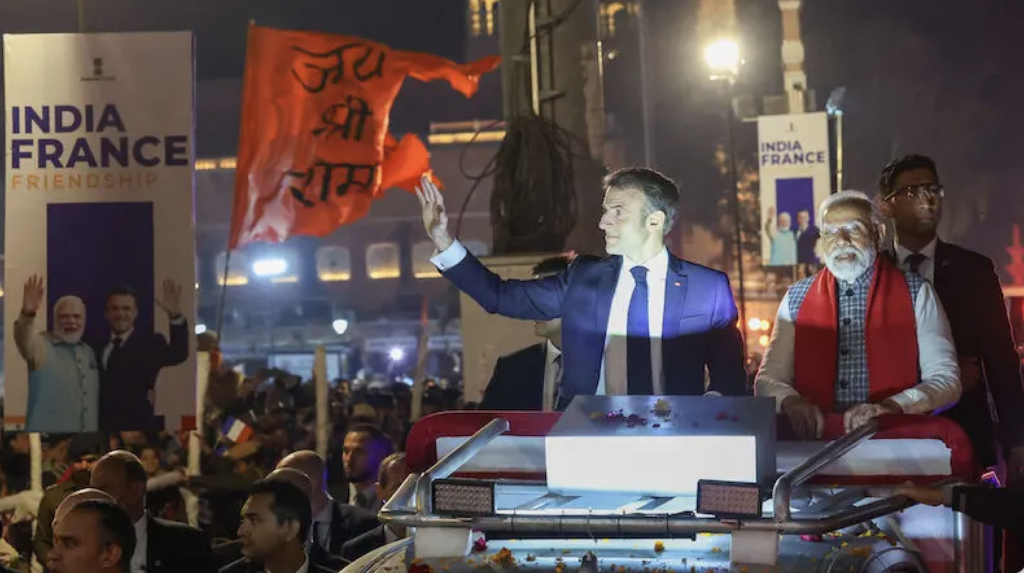
Defense interoperability has been reinforced through agreements enabling mutual access to naval and air bases. Joint naval patrols and operations, along with the sharing of intelligence and logistics support, exemplify the convergence of defense policies. The emphasis on maritime domain awareness has led to collaborative efforts in satellite surveillance systems and information-sharing mechanisms. The recent expansion of bilateral defense and security partnership signals a commitment to deeper cooperation in addressing emerging threats and challenges in the Indian Ocean region.
India and France have a longstanding history of cooperation in arms supply and high technology as well. In 2016, they signed an agreement for the purchase of 36 Rafale fighters, with the first batch arriving in India in July 2020. During Modi’s meeting with Macron in May 2022, France expressed support for India’s defense sector self-reliance, including manufacturing Safran aircraft engines and building air-independent propulsion submarines using existing production lines. France is also committed to transferring technology to India for building Scorpene submarines and supporting defense industrialization and joint research.
France has been a key advocate for India’s push towards indigenization of defense products, particularly in light of limited progress in co-production and co-development initiatives with the United States. The Rafale purchase revitalized the Project-75 for technology transfer of Scorpene submarines, aiming to promote India’s submarine-building capabilities. The collaboration with France’s Safran group for engine development further enhances India’s indigenous defense production.
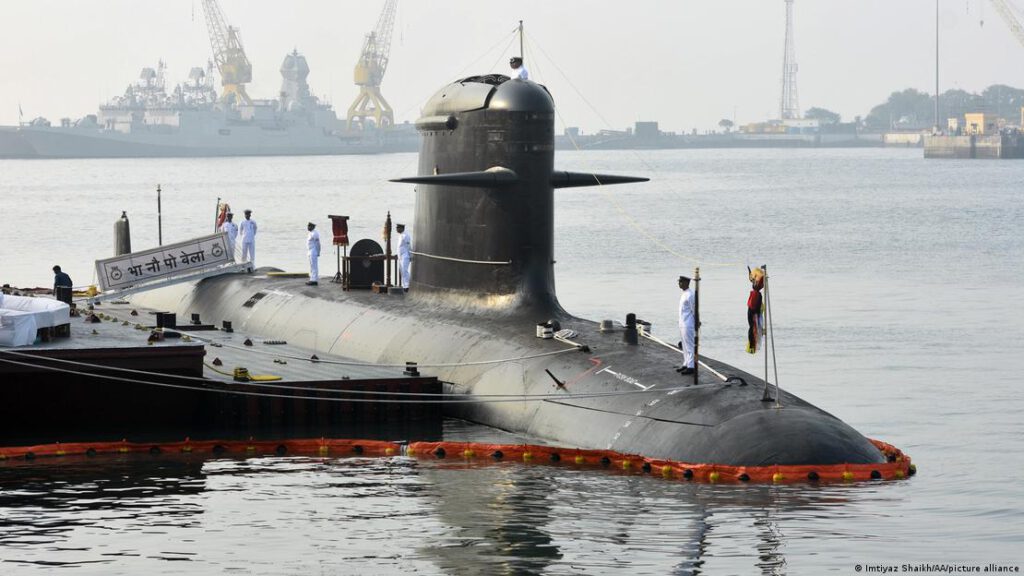
Small Multilateral Level: Expanding Strategic Relationships to Third Parties
Since the launch of the “Indo-Pacific Strategy” in 2018, France has sought to leverage “like-minded” partners to navigate the complexities of Sino-US competition and advance its strategic objectives. Multilateralism is at the core of France’s Indo-Pacific strategy, with expanding strategic ties with India serving as a key approach to engaging more allies in the region and safeguarding its security interests.
The trilateral relationship between India, France, and Australia has seen significant developments. Track 1.5 Dialogues initiated in 2018 laid the groundwork for deeper cooperation, culminating in the launch of the Indo-France-Australia Trilateral Dialogue at the level of Foreign Secretaries in September 2020. Joint communiqués and ministerial meetings have emphasized cooperation in maritime security, disaster relief, and promotion of the global commons. However, the creation of the AUKUS Alliance in September 2021 strained Franco-Australian relations, prompting France to reassess its strategic partnership with Australia and pursue bilateral cooperation aligned with its national interests.
India and France have also engaged with the United Arab Emirates (UAE) in trilateral discussions, exploring cooperation in areas such as maritime security, humanitarian assistance, and regional connectivity.
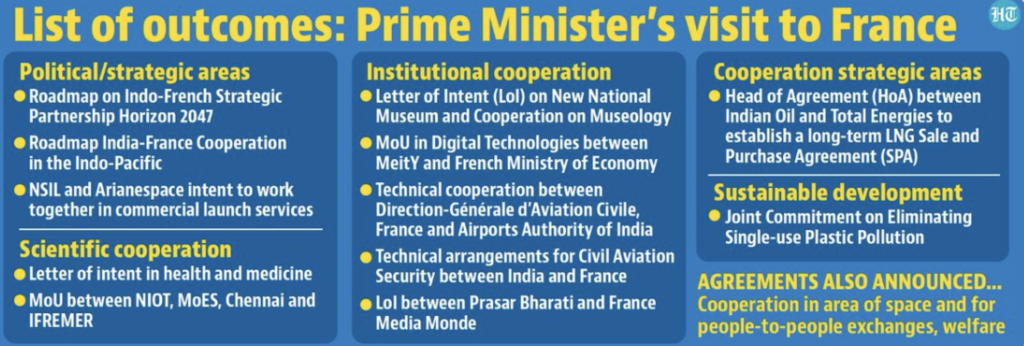
Similarly, trilateral security cooperation between India, France, and Japan has gained momentum, with discussions focusing on logistical agreements, naval cooperation, and defense technology collaboration. Recognizing the strategic importance of the Western Indian Ocean region, the three countries aim to enhance security cooperation in response to China’s presence and influence in the area. While cooperation in this region offers a less confrontational alternative to the Quadrilateral Security Dialogue, its implementation remains a topic for future coordination and cooperation among the three nations.
Global and Regional Multilateral Levels: Mutual Recognition and Support
The deepening strategic security partnership between India and France extends beyond bilateral cooperation to encompass active engagement in global and regional multilateral forums. Both countries have demonstrated mutual support and alignment on various issues, strengthening their identities and interests on the international stage.
In multilateral institutions like the United Nations, France has consistently backed India’s positions, particularly on sensitive matters like the revocation of Article 370 in Kashmir. France’s veto of a Chinese proposal regarding Kashmir at the UN highlighted its commitment to supporting India’s stance on bilateral discussions. Moreover, France has expressed support for India’s permanent membership in an expanded UN Security Council (UNSC), advocating for a more representative and effective global governance system.
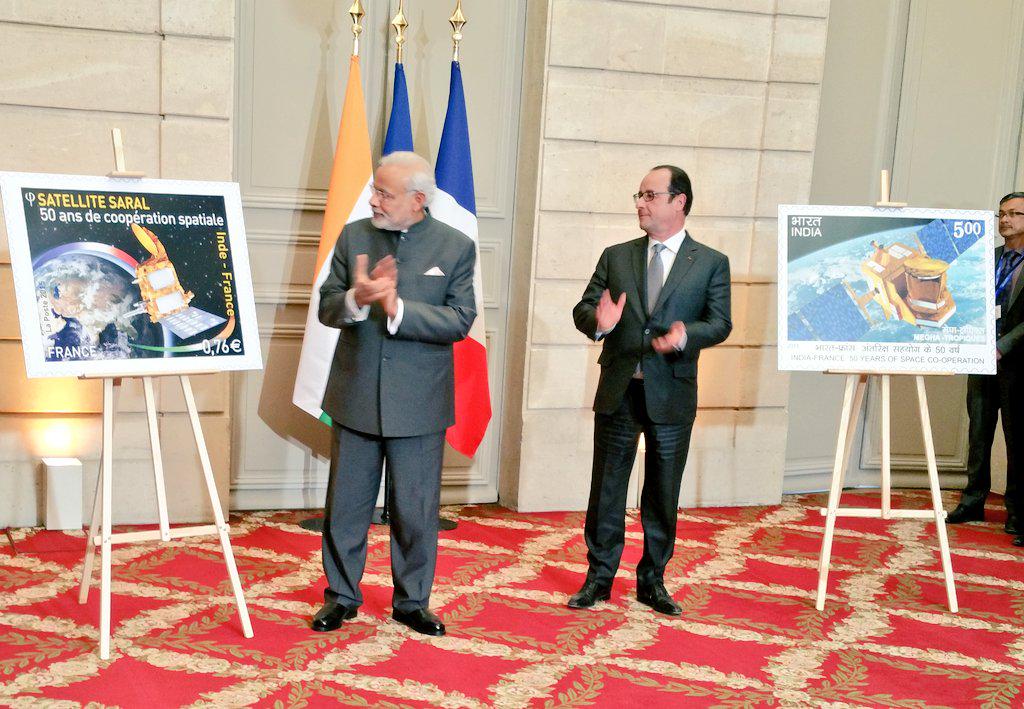
Mutual support between India and France is also evident in initiatives such as the Indian Ocean multilateral cooperation mechanisms where the two countries collaborate on various fronts including port development, blue economy, and maritime domain awareness. France’s invitation to India to join a meeting of Vanilla Islands leaders underscores the importance it places on cooperation with India in the Southwest Indian Ocean.
Overall, India and France’s collaboration in multilateral forums reflects their shared vision for a more inclusive and cooperative international order, where they work together to address common challenges and advance their strategic interests.
In summary, the Indo-French strategic security cooperation is driven by shared strategic objectives, complementarity of principles, and convergence of strategic realizations. Their collaboration spans various domains, including defense, security, and regional stability, and is characterized by mutual benefit and a commitment to upholding a rules-based order in the Indo-Pacific region.
(Source: The Economic Times, X, Compass by Rau’s IAS, Eurasia Review, Deutsche Welle)



